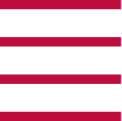Description:
BILI is the leading partner organization in the two-year Regional project “Partnership for Roma Protection, Prevention and Promotion” which is implemented in Bulgaria, Macedonia, Romania and Serbia since October 2010.
The overall goal of the Project is to reduce the systemic marginalization of Roma on the Balkans, where issues of Roma engagement and integration remain most identifiable. This goal is sought to be achieved through the following objectives:
Short term objectives:
• To improve access to justice for Roma experiencing discrimination;
• To build the capacity of individual leaders and existing local NGO’s to advocate for Roma interests at the local, national and regional level;
• To unite Roma activists at the regional level through cross-border trainings and networks of cooperation.
Long-term objectives:
• To improve the implementation and enforcement of anti-discrimination laws which help to advance the standing of Roma in society;
• To increase public awareness of Roma rights to guarantee equality for Roma;
• To forge stronger networks of Roma leaders and local NGOs so that best and common experience can be shared and learned.
During the first Project year in Bulgaria, BILI’s core Activities include:
1. Legal clinics – providing pro bono legal services to selected Roma communities.
BILI provides pro bono legal consultations and assistance to Roma through the Legal Clinic within the Law Faculty of the University of Veliko Tarnovo. Four lawyers and about 40 law students ensure regular access of disadvantaged Roma people to legal aid in three different Clinic offices - in the towns of Veliko Tarnovo, Lyaskovets and Gorna Oryahovitsa. Occasionally, lawyers and law students are traveling to other rural locations in the region, reaching the most marginalized Roma communities. Moreover, the Legal Clinic team is creating sustainable collaborations with the local municipalities, Roma organizations and Roma individuals, thus increasing awareness of Roma rights among the of the general public.
If possible, legal clinic lawyers will select a case, addressing widespread and pervasive legal issues facing Roma, for strategic litigation. This case, if favorably resolved for the client, and enforced and publicized, should have the potential to impact the situation of Roma throughout the country and the region, providing a guiding framework for future resolution and enforcement of similar cases.
2. Community Law Schools – Public legal education for Roma communities.
Two large events – Community Law Schools will be organized during the first Project year. These events aim to capture larger audience than that served by the Legal clinic. Clinic lawyers will be invited to speak about legal mechanisms available to Roma to protect their rights, as well as to present issues that routinely come up during the clinic consultations. Where feasible, government officials will be invited to discuss policies and procedures that can help facilitate access to government services and protection (filing report, registration with the social services, access to government-sponsored programs aimed at integration of Roma).
3. Legal awareness campaign
Awareness-rising materials, tackling discrimination and promoting equality are being designed and disseminated. Materials emphasize relevant legal rights protecting access to housing, employment, health care, and education, and provide information on resources available to protect these rights. Contact information for local, national, and regional organizations and services where help can be rendered is provided. Wide media coverage of BILI’s project activities is also sought.
Within the legal awareness campaign, during Project year One, BILI develops and organizes a pilot sensitivity training, targeted towards local officials in local communities who interact with Roma population. Also, BILI should formalize training materials, offer training agenda, and develop guidelines for running the course in the rest of the partner countries.
See also:
- Brochures “Legal Clinic”, “Hate speech and hate crimes”
- Flyers: “Legal Clinic”, “Handbook”, “Prosecution services”, “Court and the Commission for Protection against Discrimination”
-
Handbook “Seven steps towards active citizenship”:
Chapter 1: Personal Documents
Chapter 2: Health
Chapter 3: Labour
Chapter 4: Taxes and Social Benefits
Chapter 5: Education
Chapter 6: Social Assistance
Chapter 7: Legal Protection
-
Regional training for Roma communities and national leaders
Bi-annually, ABA ROLI will conduct regional meetings for selected civic leaders from each participating country to raise anti-discrimination and engagement efforts from the community level to the local, national, and regional levels. During these four-day meetings a series of trainings and network-building exercises will be conducted, focusing on technical skills and financial management, teambuilding, delegation, and leadership, as well as strategic planning and fundraising.
With regard to the Project implementation in year One, BILI is working in close cooperation with the Ombudsman of the Republic of Bulgaria, the Commission for Protection against Discrimination (Memorandum for Understanding signed), the municipalities of Veliko Tarnovo, Gorna Oryahovitsa, Lyskovets, and Zlataritsa; the Mayor of the village of Vodoley, the University of Veliko Tarnovo, local and national Roma NGO’s, legal and minority issues experts.
Funding/ Support/ Partner:
Subgrant agreement between the American Bar Association Rule of Law Initiative (ABA ROLI) and BILI titled “Partnership for Roma Protection, Prevention and Promotion”.
Key events:
Year One (September 2010 – September 2011)
Community Law Schools – February, 6 2011, Vodoley
During the First Community Law School in Bulgaria, lawyers and law students met with the Roma community from Vodoley. The Legal Clinic staff presented various practical issues from the social, family and labour legislation before the audience. Question and answer sessions, as well as individual legal consultations were offered.
First Regional Training of Roma Leaders – February, 27- March, 2 2011, Sofia, Bulgaria
ABA ROLI organized the First Regional Training in Sofia, Bulgaria, gathering together 40 Roma civic leaders from Bulgaria, Macedonia, Romania and Serbia, as well as representatives from the 4 partner organizations. The central topic of the Training was “Advocacy”. Among the special guests and lecturers in the event were the Ambassador of the United States in Sofia, the Ombudsman of Republic of Bulgaria, the Head of the European Commission Representation in Bulgaria.
Lecture on Bulgarian Anti-discrimination Legislation – March, 24 2011, Law Faculty, University of Veliko Tarnovo
To provide the students, volunteering in the Legal Clinic, with the opportunity to go deeper into the practical, substantive and ethical considerations to practicing anti-discrimination law, in cooperation with the Commission for Protection against Discrimination, BILI organized a lecture on antidiscrimination legislation and practices. The lecture encompassed the following issues:
- International and national antidiscrimination legislation;
- Specifics of the procedure before the Commission for Protection against Discrimination;
-
Decisions of the Commission regarding Roma rights violation and discrimination.
Sensitivity Training - April, 26-28 2011, Arbanasi, Bulgaria
14 local government administration representatives from seven municipalities - Shumen, Varna, Aksakovo, Gorna Oryahovitsa, Lyaskovets, Stara Zagora and Sofia took part in the pilot Sensitivity Training. The overall objective of the event was to raise public officials’ sensitivity towards Roma issues, thus contributing to the alleviation of discriminative attitudes and practices regarding Roma. Through interactive sessions, the following key topics were addressed:
- Understanding the Roma culture
- Individual and institutional stereotypes and prejudice
- Building a multicultural work environment
- Overcoming cross-cultural barriers
- Strategies for effective cultural communication
- Anti-discrimination legislation and standards
- Hate crimes and hate speech
- Mediation as a conflict resolving tool



